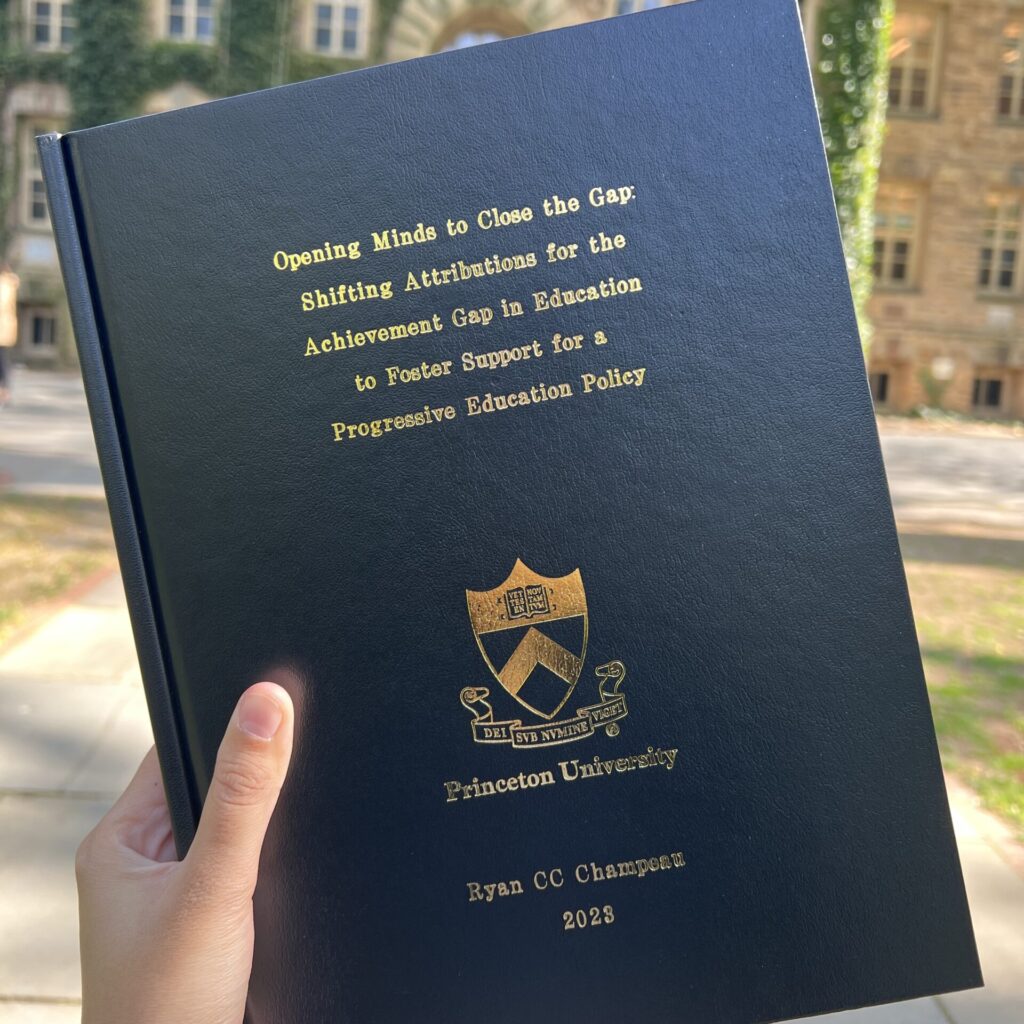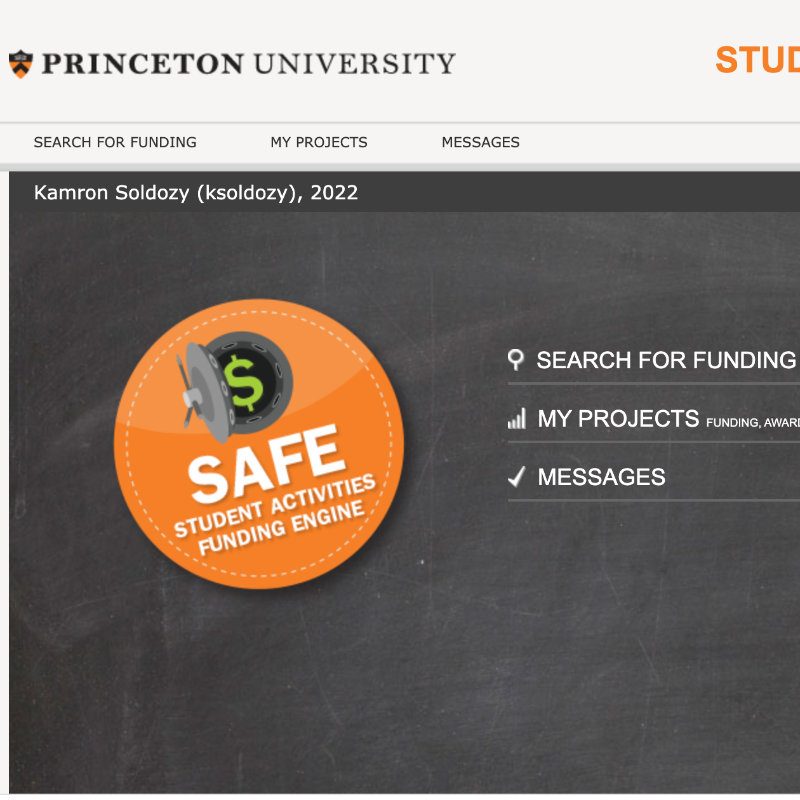
My final senior thesis!
I’ve always loved reading through senior thesis titles and thinking “Wow, that’s clever,” “That’s genius,” “I wonder how they came up with that.” The senior thesis, which many seniors refer to as a full-blown novel, is supposed to be a senior’s finest work and proudest possession. It looks impressive in its black book with gold font. It is 115 pages. It has fancy acknowledgments. As a first-year/sophomore, and even as a high schooler on tour, I was in awe at how seniors could create such a perfect paper. It isn’t until now that I know the answer: hard work.
Continue reading Effortless Perfection at Princeton: The “Perfect” Thesis is Really Hard Work








